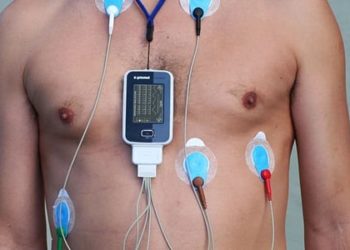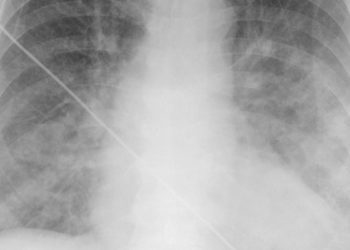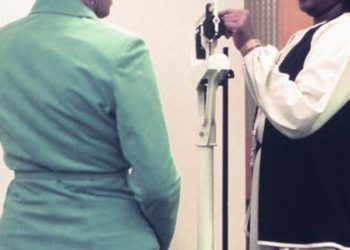The SHIFT: Ivabradine in congestive heart failure [Classics Series]
1. In patients with congestive heart failure (CHF) and baseline heart rate >70 bpm, ivabradine significantly reduced the risk of heart failure hospitalization and death from heart failure compared to placebo.
2. Compared to those on placebo, patients taking ivabradine experienced significantly higher rates of atrial fibrillation, asymptomatic and symptomatic bradycardia.
Original Date of Publication: August 2010
Study Rundown: CHF is a common condition across much of the developed world and is a significant source of morbidity and mortality. Current therapies for CHF, including angiotensin-converting-enzyme (ACE) inhibitors and β-blockers, work in part by reducing cardiac workload and harmful remodeling. However, even with maximally tolerated doses of β-blockers, many patients still present with elevated heart rates, a factor linked to increased rates of hospitalization and cardiovascular death. Ivabradine, a novel inhibitor of the “funny current” (If) channels, was found to selectively reduce heart rate in preclinical studies. The Systolic Heart failure with the If inhibitor ivabradine Trial (SHIFT) sought to investigate the effect of ivabradine on patients with CHF.
This multinational, randomized controlled trial compared adding ivabradine or placebo to standard therapy in patients with CHF and a baseline heart rate >70 bpm. In summary, patients receiving ivabradine achieved significant reductions in their average resting heart rate and experienced lower rates of cardiovascular death and hospitalization for CHF than those taking placebo. This study is limited in its generalizability, as patients with arrhythmias and severe CHF were excluded. Nevertheless, the results do suggest that heart rate plays a significant role in the progression of heart failure, and that the introduction of ivabradine may improve outcomes.
Click to read the study in The Lancet
In-Depth [randomized controlled trial]: This multinational, double-blind, randomized controlled trial was conducted in 677 institutions in 37 countries. A total of 6558 adults with stable symptomatic heart failure, a prior hospitalization for CHF, an ejection fraction <35%, and a resting heart rate >70 bpm were enrolled in the study. These participants were all maintained on standard medical therapy and randomly assigned to receive placebo or a twice-daily dose of ivabradine titrated to achieve a heart rate between 50 and 60 bpm. Exclusion criteria included recent myocardial infarction in the preceeding 2 months, ventricular or atrioventricular pacing for >40% of the day, atrial fibrillation or flutter, and symptomatic hypotension. Patients were followed for a median of 22.9 months. The primary outcome was a composite endpoint of cardiovascular death or hospitalization for worsening CHF.
Compared to the placebo group, heart rates in patients taking ivabradine were reduced by 10.9 bpm (95%CI 10.4-11.4 bpm). Patients in the ivabradine group experienced significantly lower rates of the primary outcome compared to those on placebo (HR 0.82, 95%CI 0.75-0.90, p < 0.0001). The effect was driven mainly by reduced rates of hospitalization (HR 0.74; 95%CI 0.66-0.83, p < 0.0001) and lower mortality from heart failure (HR 0.74, 95%CI 0.58-0.94, p = 0.014, respectively). In total, there were fewer adverse events reported in the ivabradine group than in the placebo group, although ivabradine was associated with increased rates of atrial fibrillation (p = 0.012), asymptomatic bradycardia (p < 0.0001), symptomatic bradycardia (p < 0.0001), and visual disturbances (p < 0.0001).
Image: PD
©2017 2 Minute Medicine, Inc. All rights reserved. No works may be reproduced without expressed written consent from 2 Minute Medicine, Inc. Inquire about licensing here. No article should be construed as medical advice and is not intended as such by the authors or by 2 Minute Medicine, Inc.





![Adverse pregnancy outcomes associated with thrombophilias [Classics Series]](https://www.2minutemedicine.com/wp-content/uploads/2015/07/Classics-2-Minute-Medicine-e1436017941513-75x75.png)
